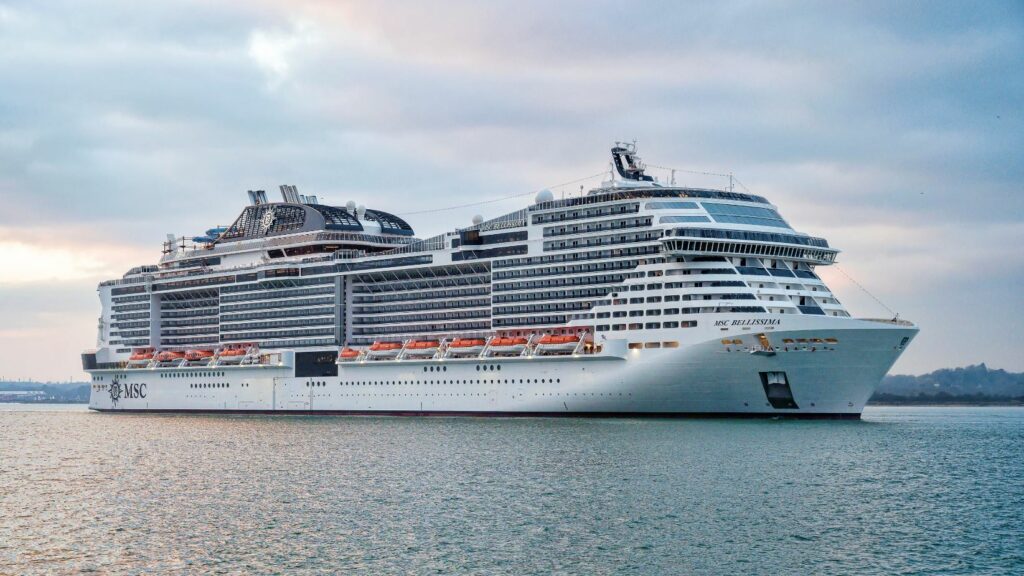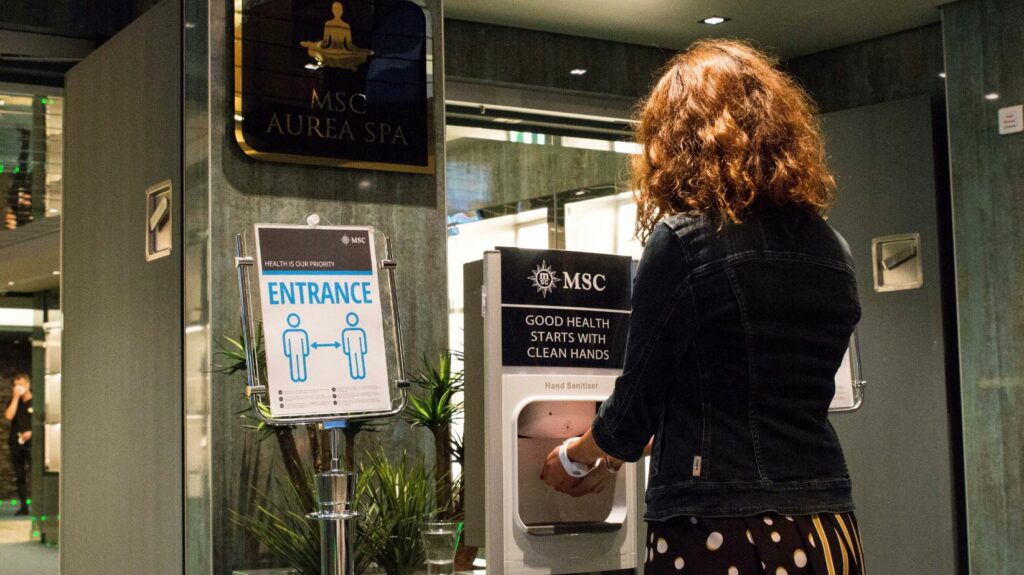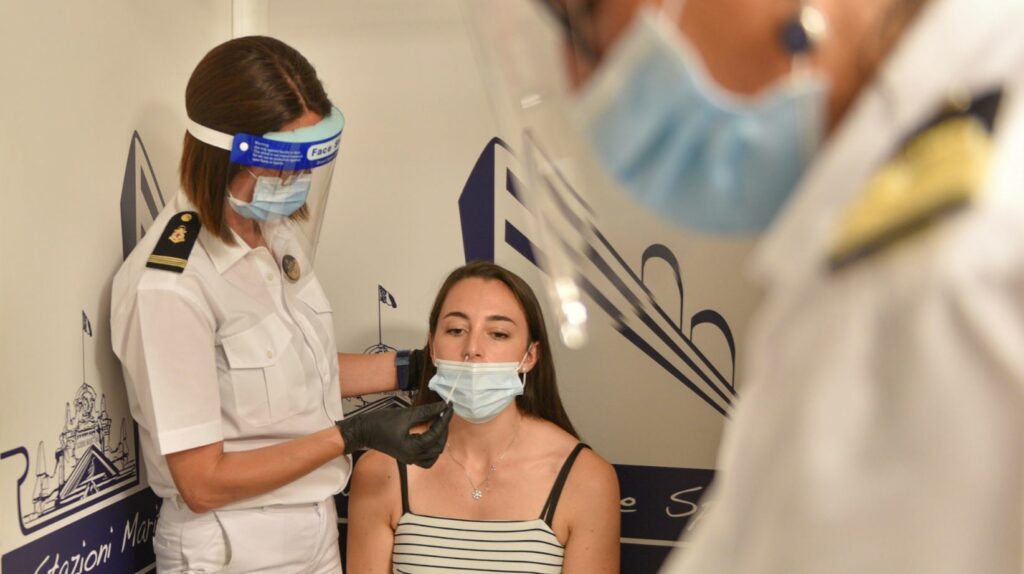MSC Cruises is the first international cruise line to receive a ‘certificate of compliance’ from the Japanese maritime classification society ClassNK for its health and safety protocol. The company’s industry-leading protocol is currently being reviewed by relevant authorities in other regions to support a phased and local restart of operations.

MSC Cruises is the first international cruise line operating in Japan to receive a health and safety certification from the country’s official maritime classification society ClassNK. This is a major step forward towards MSC Cruises’ operational restart in the country scheduled for April 2021.
The certification of MSC Cruises’ industry-leading health and safety protocol for Biosafety Management System (COVID-19) now paves the way for the line to open sales in December to local residents for cruises homeporting in Japan and start to work with ports in the country to prepare for the forthcoming season.
Gianni Onorato, MSC Cruises’ CEO, said, “We are extremely pleased to have received this certification and are now confident that we will be able to restart our Japan operation serving the local market by April 2021.”
Health and safety operating protocols of port authorities in Japan and MSC Cruises will also follow guidelines established by JOPA, the Japan Oceangoing Passenger Ship Association.
MSC Bellissima, which was launched in 2019, will be deployed to Japan, homeport in Yokohama to sail six to nine-night cruises in April, May and June 2021. She is also scheduled to operate in the country during October and November 2021.
Also read: A beautiful naming ceremony for MSC Bellissima
MSC Cruises became the first major line to resume cruise operations in the Mediterranean in August. Since then the cruise line has carried more than 30,000 customers in the Mediterranean and can now look forward to offer the same for travelers who live in Japan.
The company’s industry-leading protocol, as well as the unique sets of data gathered through the operation of its two ships calling Italy, Greece and Malta during the past few months, is currently being reviewed by authorities in other regions where the line’s other ships are scheduled to restart.
MSC Cruises health and safety protocol

The MSC Cruises health and safety protocol is based on nine key elements, many of which have been adopted by other cruise companies, the Cruise Lines Industry Association and international airlines and airports.
- Testing of all guests at least twice per voyage
- Testing of all crew at least three times before embarkation and weekly on board
- Only protected shore excursions, as organised ‘social bubbles’
- Ventilation with HVAC fresh air
- Contingency response that does not burden local health infrastructures
- Isolation space on board and tracking and tracing including close contacts
- Masks
- Physical distancing – aided by reduced capacity of the ship
- COVID-19 prevalence monitoring

The industry-leading comprehensive health and safety protocol includes:
- Universal health screening of guests prior to embarkation that comprises three comprehensive steps: a temperature check, a health questionnaire and up to two COVID-19 swab tests (antigen and RT- PCR if required). For crew members, this includes: an initial test in their country of origin; a second test upon arrival at the cruise terminal; and a third decisive test upon completion of a mandatory isolation period prior to starting their duties on board a ship
- Elevated sanitation and cleaning measures supported by the introduction of new sanitation and cleaning methods, and the use of hospital-grade disinfectant products
- Social distancing enabled through the reduction of the overall capacity of guests on board, allowing for more public space per guest while on board (approx. 10 m² per person based on 70 per cent maximum allowed overall capacity on MSC Grandiosa.)
- Enhanced medical facilities and services with highly qualified professionally trained staff, the necessary equipment to test, evaluate and treat suspected COVID-19 patients and the availability of free treatment at the onboard 24/7 Medical Centre for any guest with symptoms. Dedicated isolation cabins are also available to enable effective isolation of any suspected cases and close contacts
- Ongoing health monitoring conducted throughout the cruise. Guests and crew have their temperature checked daily either when they return from ashore or at dedicated stations around the ship to monitor the health status of every guest and crew member. Additionally, measures now include mid-cruise testing for guests and weekly for crew for the duration of their stay on board
- Protected shore excursions: Guests only go ashore as part of organised MSC Cruises excursions in a social bubble, which maintains the same high standards of health and safety measures as they experience on board. This ensures, for example, that transfers are properly sanitised and that there is adequate space. Tour guides and drivers also undergo health screening, including testing, and wear appropriate personal protective equipment
- A contingency response plan that is activated if a suspected case is identified, in close cooperation with the relevant national health authorities. The suspected case and close contacts all follow isolation measures and are disembarked according to local and national regulations
The protocol, which was designed to adapt to a fluctuating health situation ashore, was recently strengthened in line with the current evolution of the pandemic in mainland Europe. The additional measures include the following:
- Additional on-board antigen testing for COVID-19 of all guests mid-way through their cruise which are on top of the existing pre-boarding universal testing for all guests
- Frequency of testing of all crew during their time on board increased from twice-a-month to weekly, which is in addition to pre-boarding testing for all crew and other ongoing health monitoring measures
- Increased frequency of on-board sanitation, in particular of public areas and high touch points
- Tightening of the definition of close contact for tracing purposes, reducing the time that individuals are in contact from 15 minutes to 10 minutes.